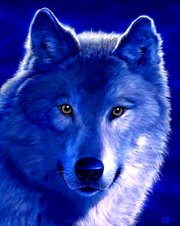
Black Bears Need To Eat Too
DENVER (Reuters) - Colorado wildlife officers have killed dozens of black bears this summer after catching the marauding bruins rummaging through campsites, foraging in neighborhood trash cans and breaking into homes for food.
Weather conditions decimated the natural food supply this year for the roughly 10,000 black bears in Colorado.
"It has been a bad summer for human and bear interaction," said Tyler Baskfield, spokesman for the Colorado Division of Wildlife.
From small mountain resorts to eastern Colorado's highly populated urban corridor, 35 bears have been killed under the state's two-strike policy so far this year.
Once a bear has been caught feeding near humans, the animal is tranquilized, tagged and returned to the backcountry. If a tagged bear is caught again, it is killed.
"The problem is not with the bears -- they're just opportunistic feeders -- but with the way humans behave," Baskfield said, adding that unsealed garbage containers, bird feeders, pet food left outside and even the smell from a barbecue grill will attract bears.
Once the bears lose their fear of humans and associate people with food, the animals must be destroyed, Baskfield said.
Other Western states battling drought conditions have also reported an increase in the number of bear problems.
In New Mexico, two campers were bitten -- not seriously -- while inside their tents, and the Lake Tahoe, California and Reno, Nevada areas have reported a higher than usual number of bears invading cabins and homes.
LACK OF FOOD
A number of factors have contributed to the problem of the nuisance bears forays into populated areas, Baskfield said. A late spring freeze killed off the mountain wild berry crop that the omnivorous animals normally rely on.
In addition, a hot and arid July dried out other high-country vegetation, forcing the bears to look for other food sources at lower elevations.
There have been no bear attacks on humans reported in Colorado, Baskfield added, but authorities want to avoid a tragedy that could happen such as the June mauling death of an 11-year-old boy by a black bear in the neighboring state of Utah.
The Colorado bear population has remained fairly constant over the three decades that the numbers have been tracked.
In late summer and early fall, black bears forage voraciously for the 20,000 calories per day they need to consume before winter hibernation. Baskfield said sows teach their cubs where to find food including from human sources, a trait they will then pass on to their offspring, creating future generations of bears accustomed to feeding near people.
Until more study is done, Baskfield is hesitant to blame climate change for the situation. The western United States has been in the grips of a decade-long drought, but in 2006 just nine bears in Colorado had to be destroyed, he noted.
Sharon Baruch-Mordo, a doctoral candidate in ecology at Colorado State University, is studying the possible effects of climate change on bears and has found several making unexpected journeys in springtime, earlier in the year than thought.
Until wide-ranging scientific studies are completed, educating people to minimize activities that will lure the bears closer to civilization is the goal of wildlife managers, according to Baskfield.
"We have a saying that a human-fed bear is a dead bear," he said.
This sounds almost like what we have here in Florida with the gators. Listen, I know there is a line here, we have to protect people from these "wild animals", BUT, these animals have a right to try to fend for themselves and their families also. It is not their fault that their natural food resources are not at hand.
What is the answer? I don't know. I do know that indiscriminatly killing these intelligent creatures out of fear and ignorance is NOT THE ANSWER!
Animalz Rule(even hungry Black Bears)








No comments:
Post a Comment